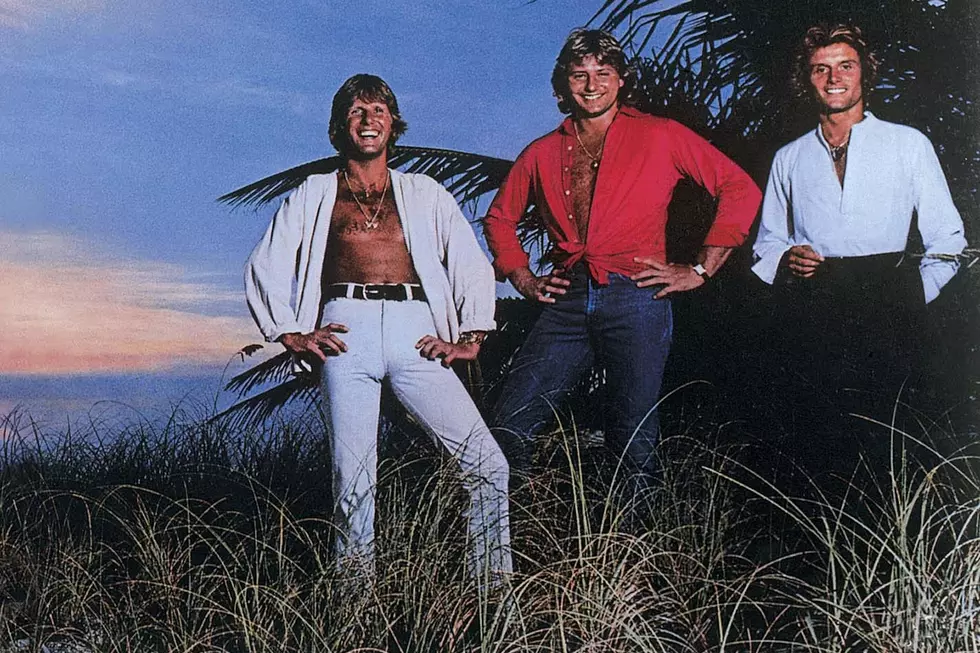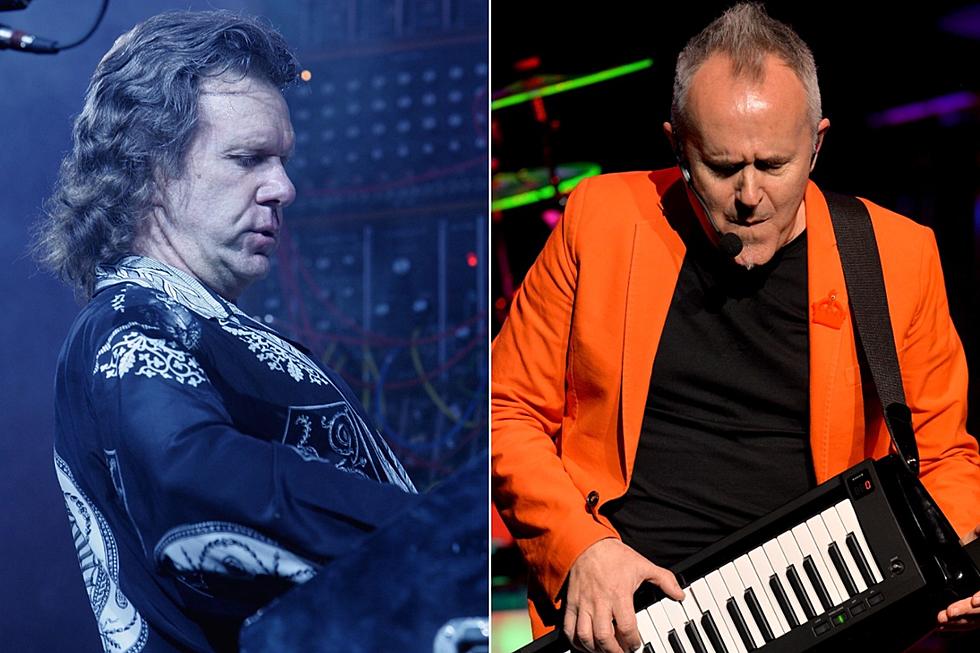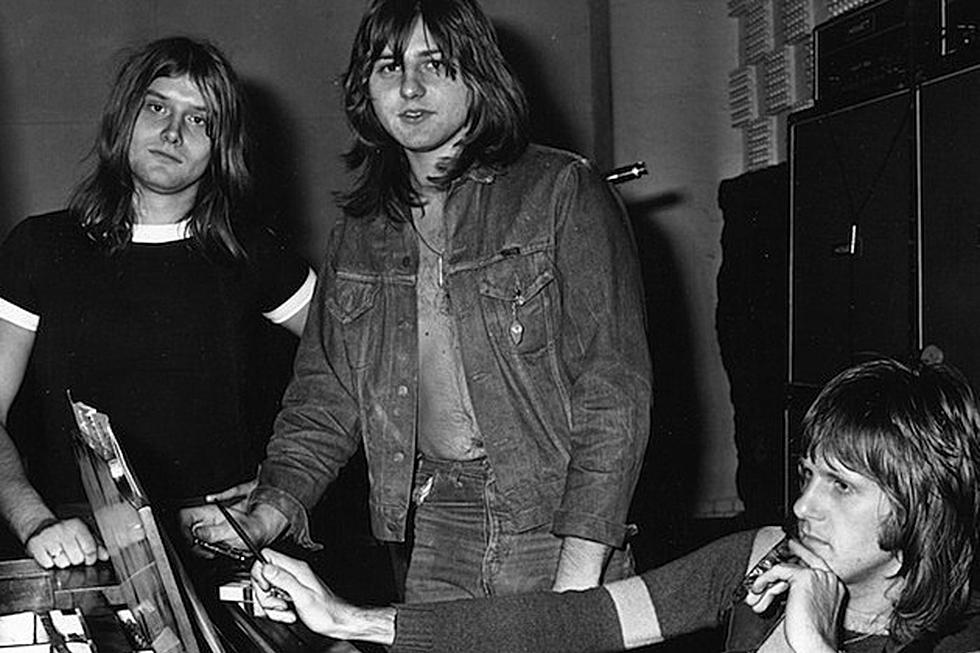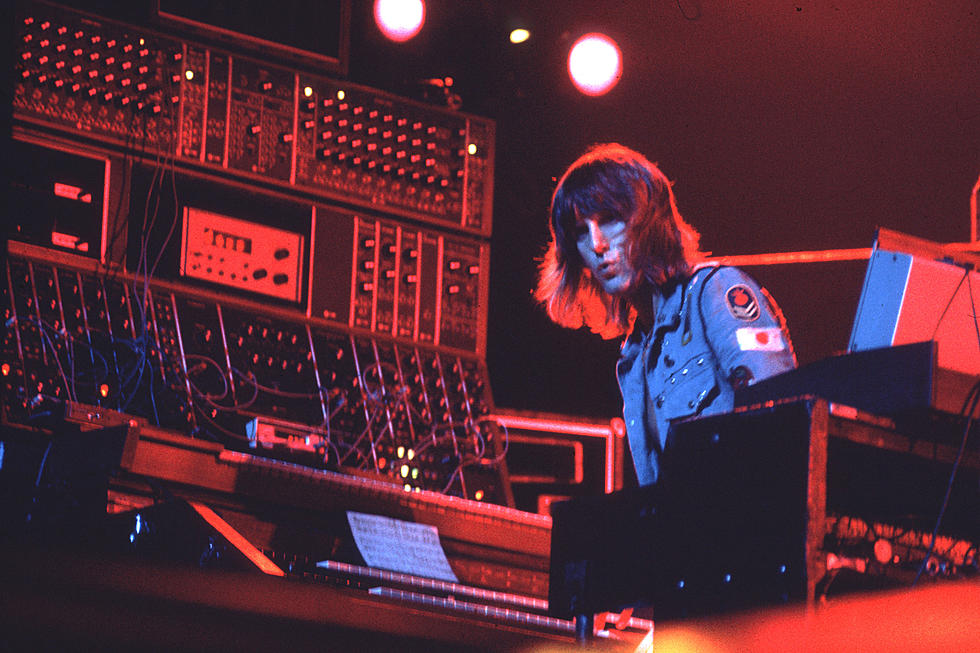
Keith Emerson of Emerson Lake and Palmer Dies
Keith Emerson, the outsized co-founding keyboardist in Emerson Lake and Palmer has committed suicide at 71, according to both Billboard and TMZ. He'd reportedly been suffering from depression over a degenerative nerve issue in one hand that had sharply curtailed his ability to play, TMZ added.
Long-time bandmate Carl Palmer said Emerson passed last night (March 10) in Santa Monica, Calif., though he gave no further details on the manner. ELP later confirmed Emerson's death, as well.
"Keith was a gentle soul whose love for music and passion for his performance as a keyboard player will remain unmatched for many years to come," Palmer said. "He was a pioneer and an innovator whose musical genius touched all of us in the worlds of rock, classical and jazz."
Law enforcement sources apparently have told TMZ that Emerson was found by his girlfriend with a single gunshot to the head. Billboard says his death is being investigated as a suicide.
Emerson Lake and Palmer hadn't performed together since 2010, when they staged a 40th anniversary reunion at the High Voltage Festival in London. Their most recent studio effort was 1994’s In the Hot Seat. Since, Emerson had regularly collaborated with Marc Bonilla. They released 2008's Keith Emerson Band featuring Marc Bonilla, 2009's Boys Club: Live From California (which also featured Glenn Hughes) and 2012's The Three Fates Project.
The keyboardist first rose to wide fame as a member of the Nice, earning initial widespread notice by turning a 1968 instrumental rearrangement of Leonard Bernstein's "America" into a proto-prog protest song. Two years later, Emerson joined Palmer and Greg Lake in forming one of progressive rock's best-known early bands.
Emerson Lake and Palmer's first five studio albums, each featuring heady combinations of rock and classical themes, reached the U.S. Top 20. Emerson also conceptualized their 1971 live project Pictures at an Exhibition, a 37-minute rock adaptation of Mussorgsky's piece of the same name. Still, as technically gifted as he was, Emerson may be best remembered for the sense of high-stakes drama that he brought to the stage.
Over the years, the flamboyant Emerson played on a rotating platform, destroyed an organ in order to create a feedback-laden soundscape, set explosions to go off, and performed on a specially rigged piano that turned end over end. He would reach into the instrument to pluck a piano string, or use a knife given to him by former Nice roadie Lemmy Kilmister to hold down the keys. That same sense of adventure translated into the studio. ELP's debut single "Lucky Man" finds Emerson trying out a new Moog for the very first time.
"I will always remember his warm smile, good sense of humor, compelling showmanship, and dedication to his musical craft," Palmer added. "I am very lucky to have known him and to have made the music we did, together."
Emerson's first solo work arrived in the early '80s, a few years after ELP closed out their initial era of albums with 1978's Love Beach. Emerson Lake and Palmer subsequently reunited for two more '90s-era albums, but only after Emerson took part in a pair of offshoot bands. He and Lake joined Cozy Powell for 1986's Emerson Lake and Powell, then Emerson and Palmer collaborated with Robert Berry on 1988's 3. Emerson reunited with Lake again for a duo tour a few years ago, dates the ultimately produced 2014's Live from Manticore Hall.
Rockers We've Lost in 2016
More From Ultimate Classic Rock









